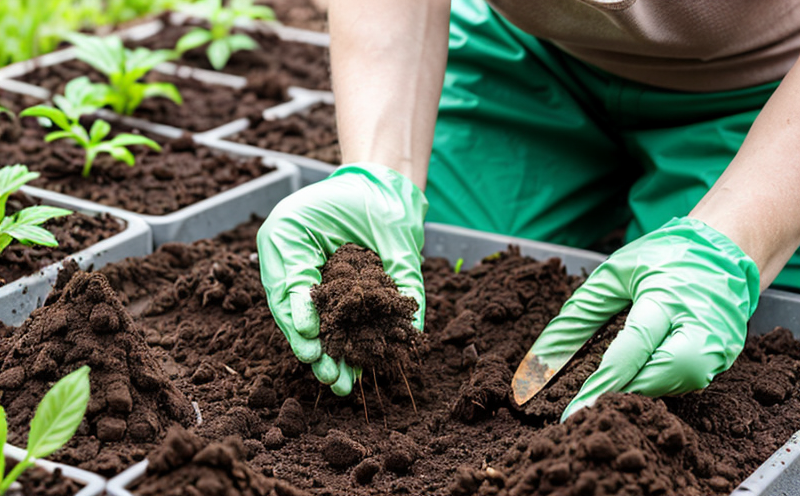NF EN 15186 Scratch Resistance Testing of Outdoor Plastic Surfaces
NF EN 15186 specifies a standardized procedure for assessing the scratch resistance of outdoor plastic surfaces. This method is crucial in ensuring that materials used outdoors, such as those found in gardening equipment or furniture, can withstand environmental and mechanical stresses effectively.
The test aims to evaluate how well a material will resist abrasion by various types of sharp objects. The primary goal is to predict the durability of outdoor plastics under real-world conditions. This testing method is particularly important for manufacturers who wish to ensure their products meet international standards, thereby enhancing customer satisfaction and product longevity.
The procedure involves several key steps. First, a standardized scratch tool is used to apply controlled scratches across the surface of the specimen. The depth and direction of these scratches are carefully controlled according to NF EN 15186. After applying the scratches, the sample undergoes visual inspection to assess any visible damage.
The test can be conducted under different environmental conditions to simulate various outdoor scenarios. This includes exposure to sunlight, temperature changes, humidity, and rain. These variations help in understanding how the material performs in real-world conditions before being introduced into the market.
Post-testing analysis involves quantifying any visible damage or loss of coating integrity. The results are then compared against predefined acceptance criteria specified by NF EN 15186. Compliance with these standards is essential for ensuring product quality and reliability, especially when dealing with outdoor applications where durability is paramount.
The application of this test extends beyond mere compliance; it also aids in continuous improvement efforts within R&D departments. By identifying weak points early on through rigorous testing, manufacturers can refine their formulas and processes to create more robust products.
Understanding the nuances behind NF EN 15186 requires familiarity with both the technical aspects of plastic composition and the specific environmental challenges faced by outdoor applications. This knowledge enables companies to make informed decisions about material selection and process optimization, ultimately leading to better-performing products.
In summary, NF EN 15186 provides a comprehensive framework for evaluating scratch resistance in outdoor plastics. Its implementation ensures that materials used outdoors not only meet but exceed expectations regarding durability and longevity. This standard plays an integral role in quality management practices across industries dealing with environmental exposure issues.
Applied Standards
The NF EN 15186 scratch resistance test for outdoor plastic surfaces is aligned with other international standards such as ASTM D4303 and ISO 15187. These global benchmarks provide a consistent methodology across different regions, ensuring that results from various laboratories are comparable.
The standard outlines specific procedures for preparing specimens, conducting the scratch tests, and interpreting outcomes. It emphasizes the importance of replicating natural environmental conditions during testing to accurately reflect long-term performance expectations.
For instance, NF EN 15186 recommends exposing samples to UV light simulating sunlight exposure, which can accelerate aging processes in plastics. Additionally, it prescribes maintaining controlled temperature and humidity levels to mimic seasonal variations typical of outdoor environments.
The standard also details acceptable methods for measuring scratch depth using optical profilometers or other suitable instruments. This ensures accurate quantification of surface damage caused by simulated abrasion tests.
Furthermore, NF EN 15186 stresses the need for standardized reporting formats to facilitate clear communication between testing facilities and clients regarding results obtained. This standardization promotes transparency and trust within industry circles while supporting regulatory compliance requirements.
International Acceptance and Recognition
- European Union: NF EN 15186 is widely accepted across EU member states, where it serves as a benchmark for evaluating outdoor plastic materials used in various sectors including gardening and furniture.
- Nordic Countries: The standard enjoys high recognition due to its alignment with Nordic environmental standards, making it suitable for products intended for export or use within these regions.
- Australia/New Zealand: Although not officially mandated, many manufacturers in A/NZ choose to comply voluntarily as part of their quality assurance programs.
- Asia-Pacific: There is growing interest among Asian countries towards adopting similar standards for comparable reasons, reflecting increasing awareness about product durability and environmental impact.
The widespread acceptance of NF EN 15186 underscores its relevance globally. By adhering to this standard, businesses can ensure their products meet stringent quality benchmarks recognized worldwide, enhancing market access opportunities and fostering international collaborations.
Use Cases and Application Examples
The application of NF EN 15186 scratch resistance testing is particularly relevant for manufacturers producing gardening tools like trowels, shears, and hoes. These tools come into frequent contact with various surfaces outdoors, making them susceptible to abrasion and potential damage.
Outdoor furniture such as chairs, tables, and benches also benefit from this type of testing. Weather exposure over time can degrade plastic components, affecting both functionality and aesthetics. By undergoing NF EN 15186 scratch resistance tests early in the development cycle, designers can identify areas needing improvement, ensuring longevity and reliability.
Additionally, lawn ornaments such as statues or garden lights need to withstand environmental elements while maintaining their appearance. Implementing this testing ensures that these decorative items remain intact despite regular use and exposure to harsh weather conditions.
The standard is also beneficial for suppliers of plastic components used in recreational vehicles (RVs) or other outdoor leisure equipment. These products must endure continuous exposure to sunlight, rain, wind, and varying temperatures, requiring robust materials capable of withstanding such stresses without compromising performance.
Furthermore, NF EN 15186 scratch resistance testing helps in the quality control process for manufacturers involved in producing plastic mulches or ground covers used in agricultural settings. These products play a crucial role in protecting crops from weeds and pests while enhancing soil moisture retention. Ensuring these materials meet high standards ensures effective crop protection strategies.
Lastly, this testing is applicable to suppliers of containers or packaging designed for outdoor storage solutions. Such items require durability against external factors like UV radiation, mechanical impacts, and temperature fluctuations.





